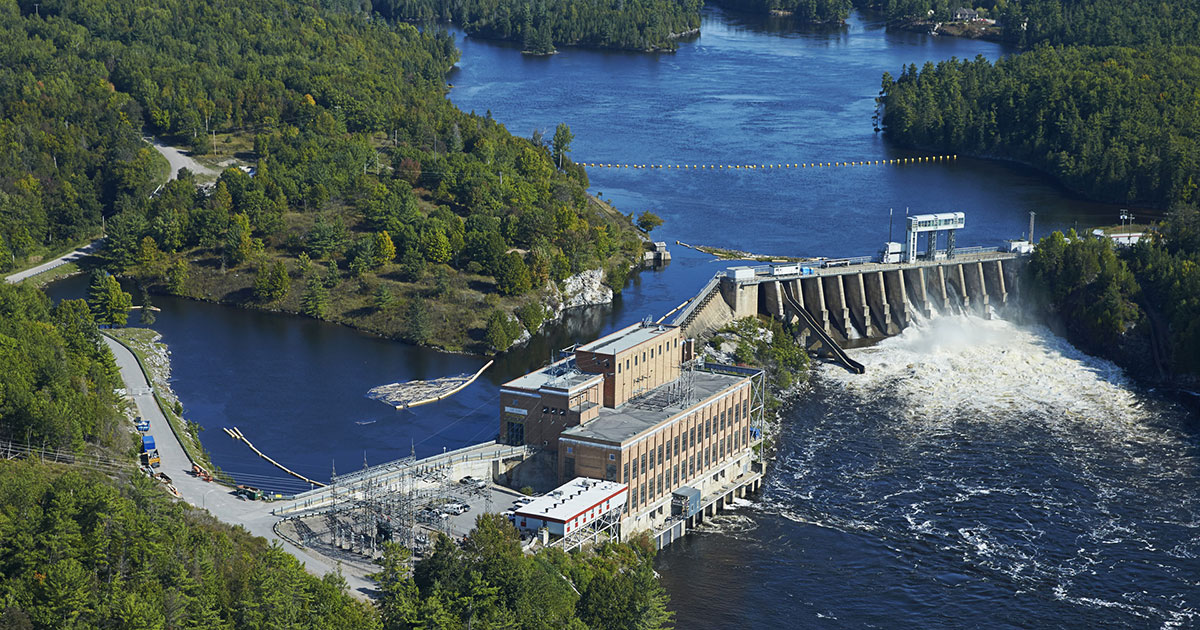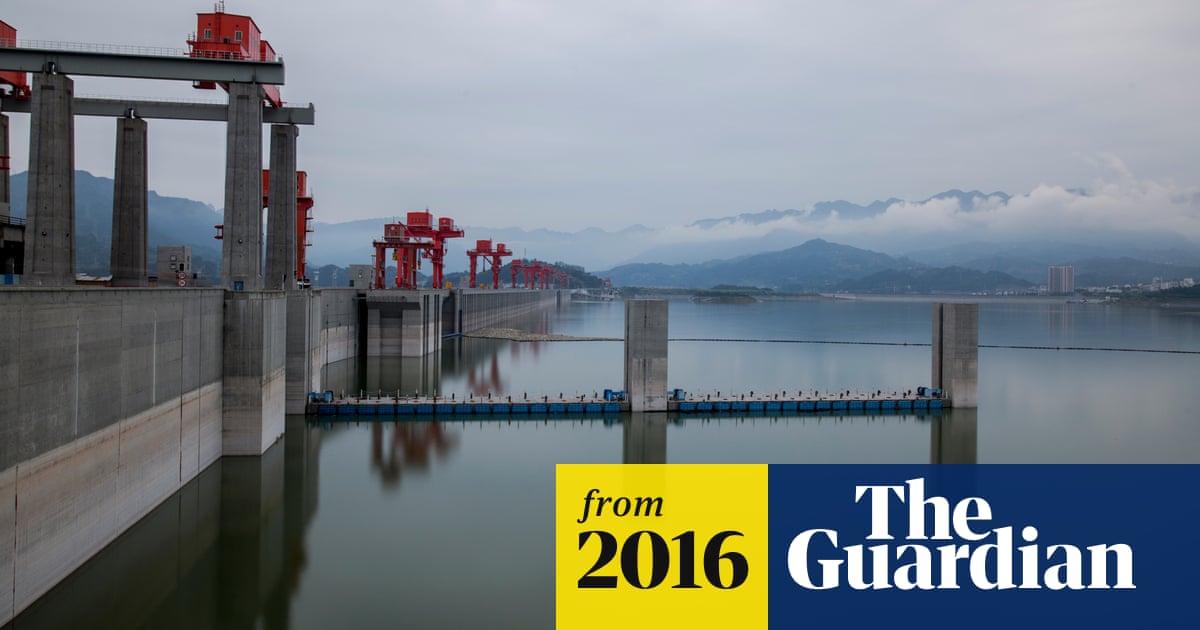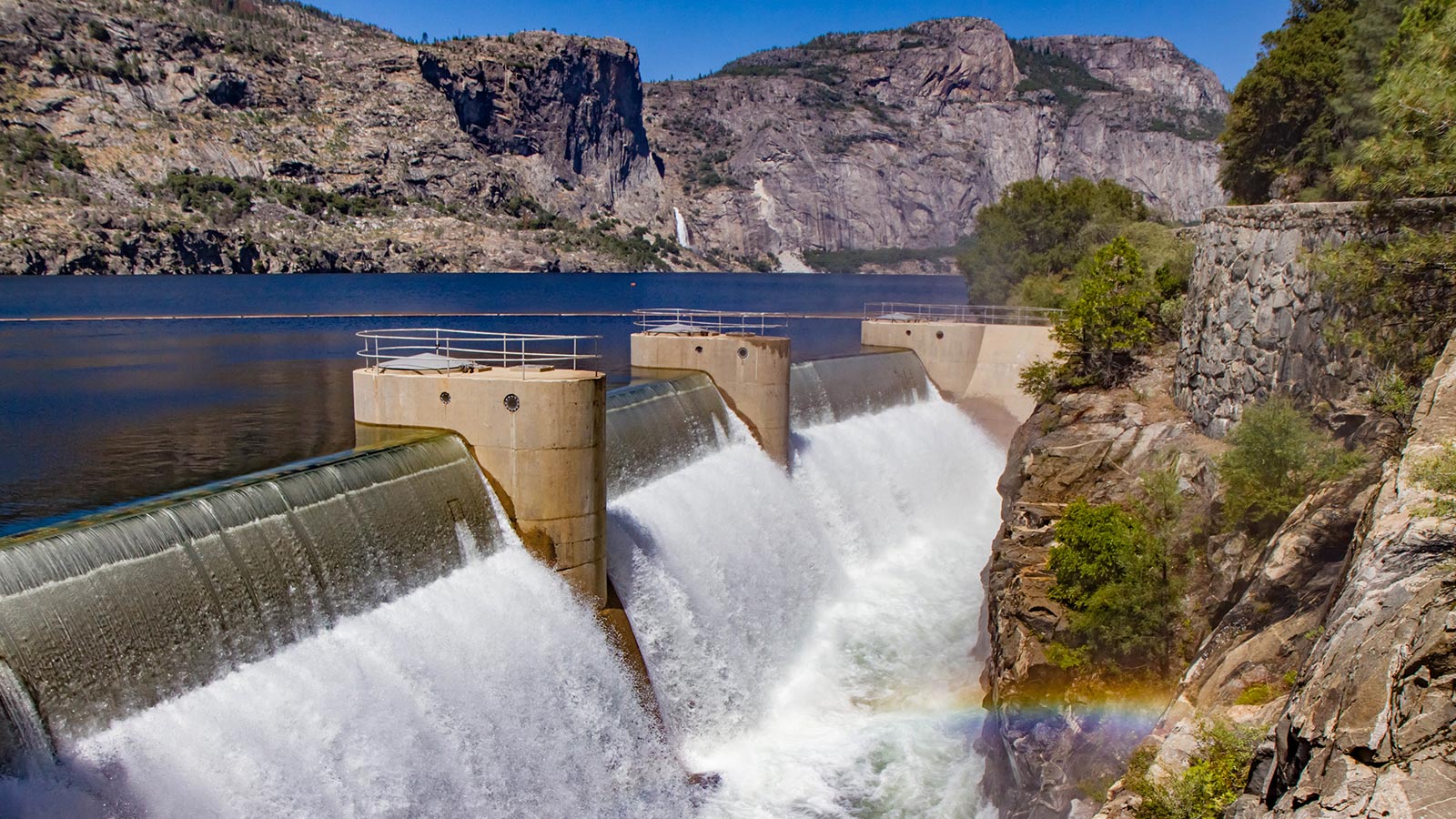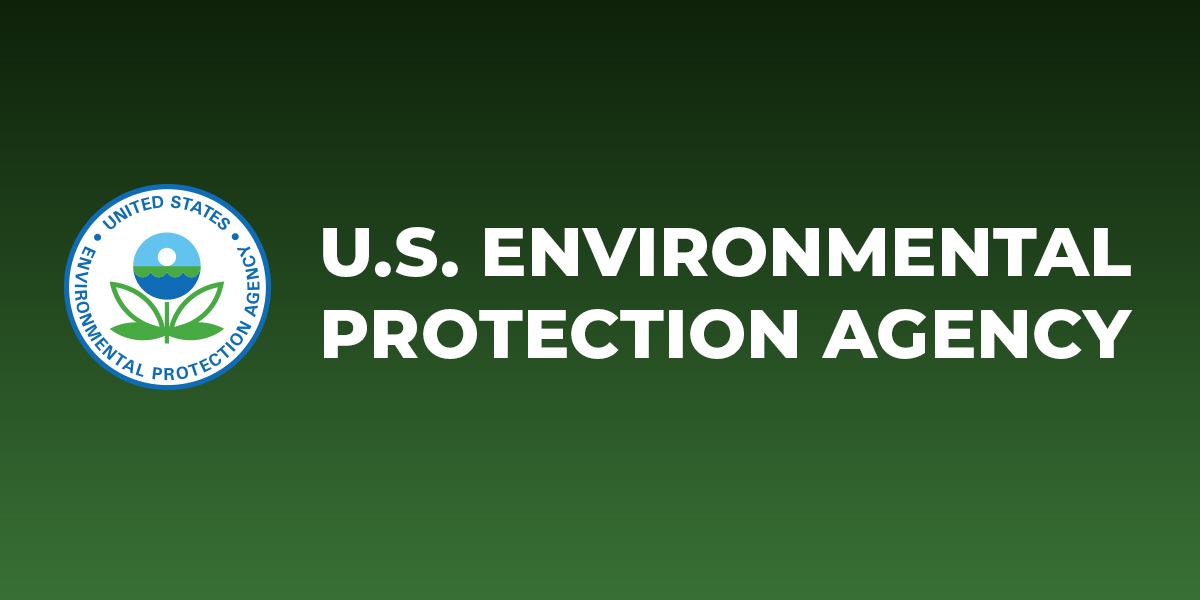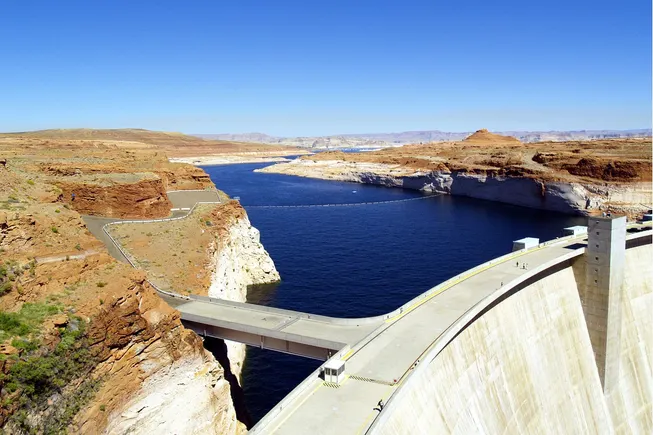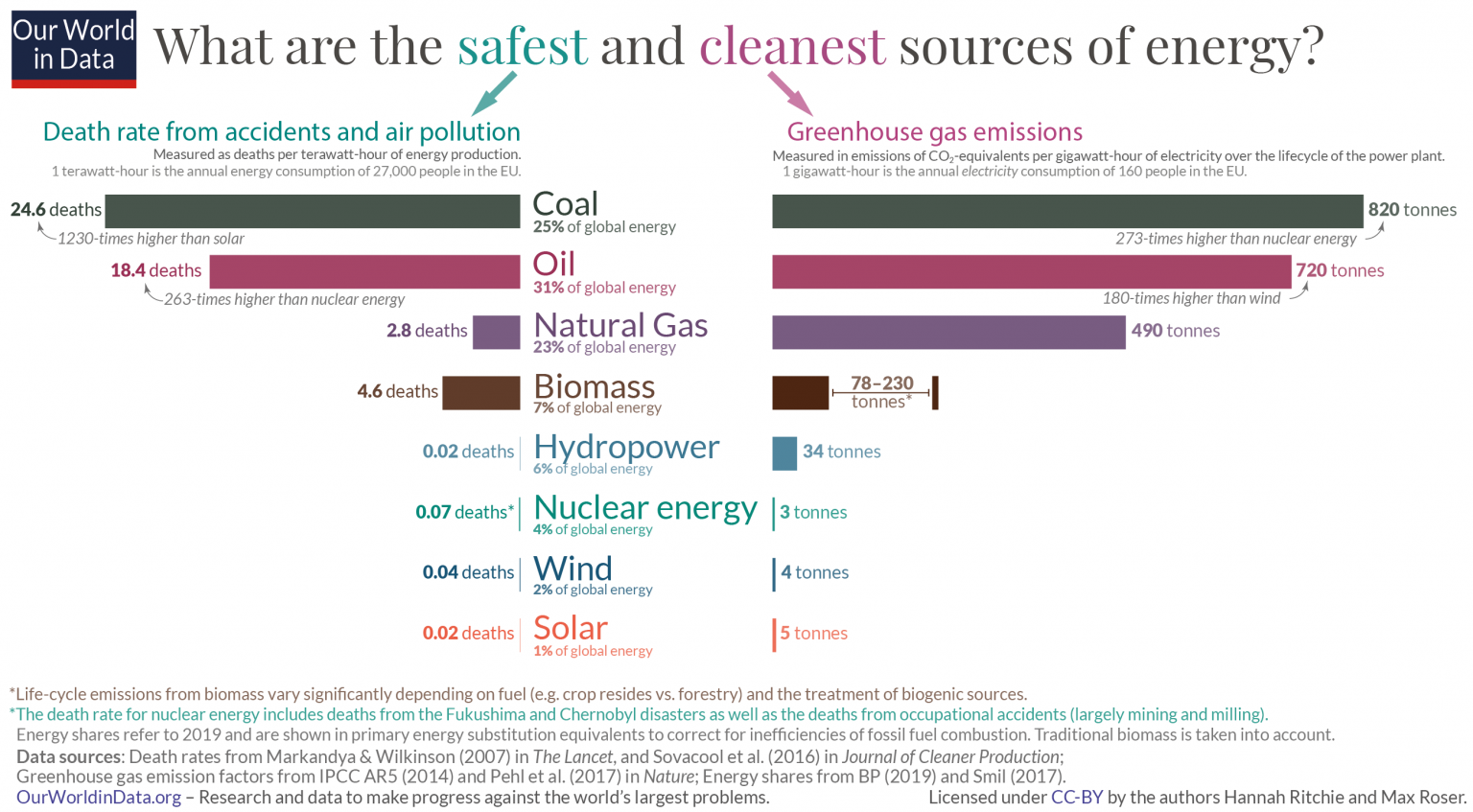Methane is not the only factor, but that is actually a load of BS.
Impact of dams on climate change has been underestimated, researchers warn, as rotting vegetation creates 25% more methane than previously thought

www.theguardian.com
The Guardian is usually pretty reliable, I'll give you that but no other entity has adopted the "billion tonnes of greenhouse gas from hydro plants" stance since this article came out and they've had 4¼ years to do so. In fact, here's a paper from 2020 on
ResearchGate that
completely refutes the claims made in The Guardian 4½ years ago:
"Hydropower and climate change show a double relationship. On the one hand, as an important renewable energy resource, hydropower contributes significantly to the avoidance of greenhouse gas (GHG) emissions and to the mitigation of global warming. On the other hand, climate change is likely to alter river discharge, impacting water availability and hydropower generation. Hydropower contributes significantly to the reduction of GHG emissions and to energy supply security. Compared with conventional coal power plants, hydropower prevents the emission of about 3 GT CO2 per year, which represents about 9% of global annual CO2 emissions."
The Role of Hydropower in Climate Change Mitigation and Adaptation: A Review
“It’s pretty alarming,” Ilissa Ocko, the study’s lead author, told Grist.

grist.org
I'll see your grist.org and raise you one epa.gov:
The American EPA also refutes the Guardian's claim on their own website:
"Coal combustion is more carbon intensive than burning natural gas or petroleum for electricity. Although coal use accounted for about 61 percent of CO2 emissions from the sector, it represented only 24 percent of the electricity generated in the United States in 2019. Natural gas use accounted for 37 percent of electricity generation in 2019, and petroleum use accounted for less than one percent. The remaining generation in 2019 came from non-fossil fuel sources, including nuclear (20 percent) and renewable energy sources (18 percent), which include hydroelectricity, biomass, wind, and solar.1 Most of these non-fossil sources, such as nuclear, hydroelectric, wind, and solar, are non-emitting."
Sources of greenhouse gas emissions, inculding electricity production, tranportation, industry, agriculture, and forestry.

www.epa.gov
Now, I don't really believe that they're completely non-emitting but when 61% of emissions come from the source of only 24% of the total generated watts, it's pretty clear that there's absolutely zero chance of hydro producing more than the burning of fossil fuels. I kinda think that the EPA is far more aware of what the national numbers are when it comes to their power generation compared to an online environmental magazine that is run by a former Washington State politician.
Hydropower supporters countered the report, saying the facilities in question are not a major source of emissions and the "real story" is the industry’s role in decarbonizing the electric system to meet clean energy targets.

www.utilitydive.com
I have no idea who utilitydive is but they're quoting the Environmental Defense Fund, a charity that seems kinda skeevy when you look closely at them:
"EDF has drawn criticism for its ties to large corporations including McDonald's, FedEx, Walmart, and the Texas energy company TXU, with which the organization has negotiated to reduce emissions and develop more environmentally friendly business practices. EDF's philosophy is that it is willing to talk with big business and try new approaches in order to get environmental results."
Yeah because that approach has ALWAYS yielded positive results, eh? /S
Then of course, there's this tidbit which just makes me cringe because it completely destroys the EDF's credibility:
"EDF has been accused of funding and disseminating studies [129] that utilize questionable science and economics in their promotion of catch share fishery management. Also, they have employed substantial political lobbying to promote fisheries policies that tend to force out smaller fishing businesses in favor of consolidated, corporate owned fleets, while denying any adverse effects these programs have on fishing families and communities."
Sweet Jesus, that's just.... yeah. It's clear that they don't have much in the way of ethics which makes me think that they're somewhat akin to a Koch brothers charity. However, it doesn't make sense as to why they would lie about the greenhouse emissions of hydro dams until I saw this next part and then it made a lot more sense:
"EDF has funded studies jointly with the petroleum industry on the environmental effects of natural gas production. The policy has been criticized by some environmentalists."
REAL environmental scientific groups
do not get chummy with big oil and
definitely don't carry out joint studies with them because it's a massive conflict of interest. Case-in point, they drew the impossible conclusion that hydropower emits more greenhouse gases than burning fossil fuels.
Sometimes you gotta do a little bit of sleuthing to find and analyse the sources of these articles on little corporate sites like "utilitydive" before throwing them into a discussion. Hell, that site that isn't even big enough to have its own Wikipedia page. Speaking of which, here's the source for the quotes that I stuck up there:

en.wikipedia.org
As before, I'll see your UtilityDive and raise you one
OurWorldInData:
Our World In Data: What are the safest and cleanest sources of energy?
About the author:
"Hannah joined us in 2017. She is Senior Researcher and Head of Research at Our World In Data. She focuses on the long-term development of food supply, agriculture, energy, and environment, and their compatibility with global development. Hannah completed her PhD in GeoSciences at the University of Edinburgh."
Author: Hannah Ritchie, Head of Research, OurWorldInData Team
Now,
that is a credential you can pay attention to.
When it comes to scientific matters, I have a tendency to avoid corporate websites like The Guardian and ultilitydive in favour of government and ethical scientific websites like Hydro-Quebec, the American EPA, ResearchGate and OurWorldInData. Any website can be paid under the table by a special interest that remains anonymous. Government departments aren't affected by lobbyists, politicians are. When it comes to scientific sources, I only look at the ones that have no criticisms raised concerning their scientific methods (unlike the EPF). ResearchGate and OurWorldInData are two such sources.
Is that right. There is a Hydroelectric plant in Washington that produced something like 6 or 7 GW from 3 facilities. I think it was one of the top 10 plants in the world and by far North America.
I think that you should read my post again because I said
Hydro-Quebec which is a
power generating entity with an installed hydro capacity of 36.7GW, not just one single hydro dam. Now, to be fair, after fact-checking myself I am actually incorrect because Brazil opened a bunch of plants recently and since they are nationalised instead of provincialised, Centrais Eletricas Brasileiras is actually the largest in the Western Hemisphere and second in the world, overtaking Hydro-Quebec by about 8GW. However, Hydro-Quebec does sit third in the world (2nd in the Western Hemisphere and 1st in North America) with the Russian company RusHydro sitting fourth and Electricite de France sitting fifth.
What are the largest hydropower companies in the world?
So yeah, I was incorrect. Hydro-Quebec is only the largest producer of hydropower in North America. As for the Grand Coulee Dam, I really don't know what it has to do with anything because it's only the fourth-largest hydro dam in the Western World. Paraguay, Venezuela and Brazil all have larger dams than the Grand Coulee.
The World’s 10 Largest Hydroelectric Dams
Scavenger, you should know by now that I NEVER discuss in bad-faith. It's just not my way because I consider it to be a waste of time. I'm just not one to spew BS because I would consider it embarrassing.
